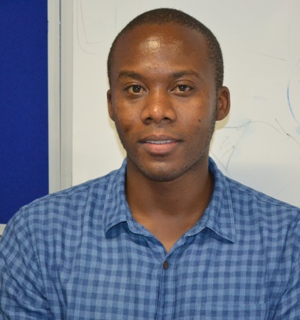Developing the next generation of academics


Dr Ikumi, who joins eight other past Carnegie fellows, tells us how the programme impacted his academic career.
The aim of the Carnegie Fellowships is to develop the next generation of academics in Africa. Funded by the Carnegie Corporation of New York, the project is intended to strengthen postgraduate research and training through the partnership universities: UCT, Makerere University (Uganda), the Universities of Ghana and the Witwatersrand. Over the length of the project almost 100 new academics will be produced for the continent.
Mandisa Ralane asked Dr Ikumi how he felt about participating in this ground breaking programme.
Why did you decide to participate in the Carnegie Fellowship Programme?
I had been informed of the Carnegie program objectives–which is supporting the next generation of African academics with the larger goal of course of contributing towards increase in human resource potential that would support national economic development. After counting the costs of an academic life (which involves, inter alia, teaching, examining and counselling students, undertaking committee and other professional work, jumping through endless evaluation hoops, preparing various programs, writing course material, carrying out and publishing research and keeping up to date academically), I was glad that the Carnegie program encourages exposure not only to research but to all these other academic activities. Moreover, the Carnegie program also encouraged the identification of mentors who could support you throughout the whole process.
What first attracted you to do a PHD at UCT?
During my undergraduate Civil Engineering studies, I developed a keen interest in the wastewater treatment (the research area for my post graduate studies) and wished to belong to a university and department with well renowned professors and great personalities. UCT, which is high ranking in my field of expertise, offered this chance to work with successful individuals such as, My PhD supervisor Professor George Ekama.
What were the highlights of your PHD (in terms of your research focus, for example)?
My research focus was within mathematical modelling of wastewater treatment systems. The highlights were mainly (i) the successful completion of the experimental work – which involved daily operation and testing of 3 lab scale wastewater treatment plants, (ii) working with research mentors (such as Prof. George Ekama (UCT), Chris Brouckaert (of UKZN), Peter vanroleghem (of Université Laval, Cananda) and fellow postgraduate students (such as Mr.Theo Harding - UCT PhD Candidate) towards development of the wastewater treatment plant mathematical model. This model was later to be used in providing expert information for design and operational strategies for these systems.
How did the Canergie Fellowship programme contribute/ alter your professional development?
The civil engineering department to which I belong recognises the importance of good mentorship and the Carnegie scholars here were treated as part of the academic staff, ensuring that I was exposed to opportunities and tools for the development of my prospective academic career. So as a Carnegie Scholar I was fortunate to get opportunities in assisting with the lecturing of the wastewater treatment undergraduate course and also the supervision of undergraduate and postgraduate thesis projects. This contributed significantly in providing the necessary skills and experience, contributing towards achievement of goals for my academic profession.